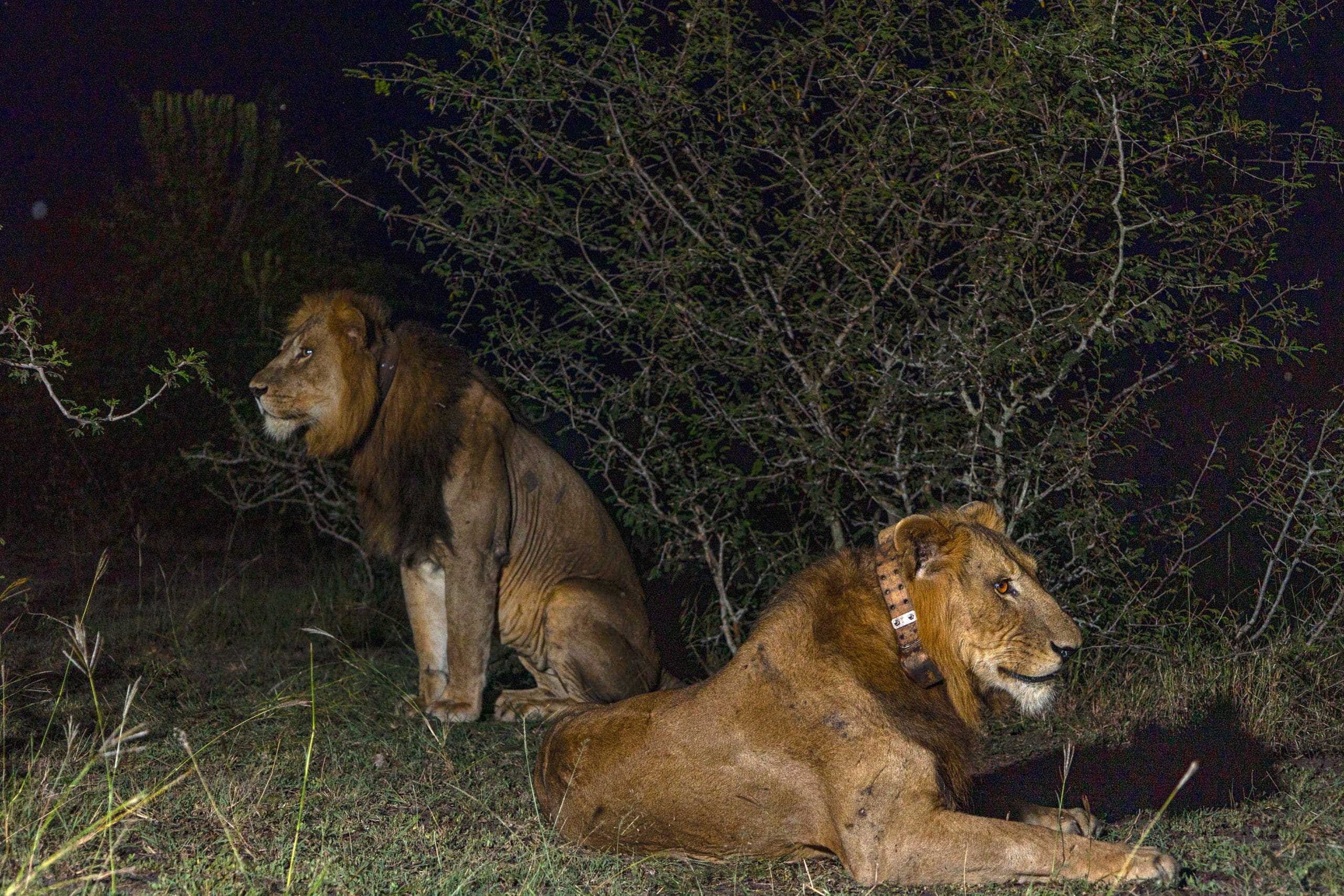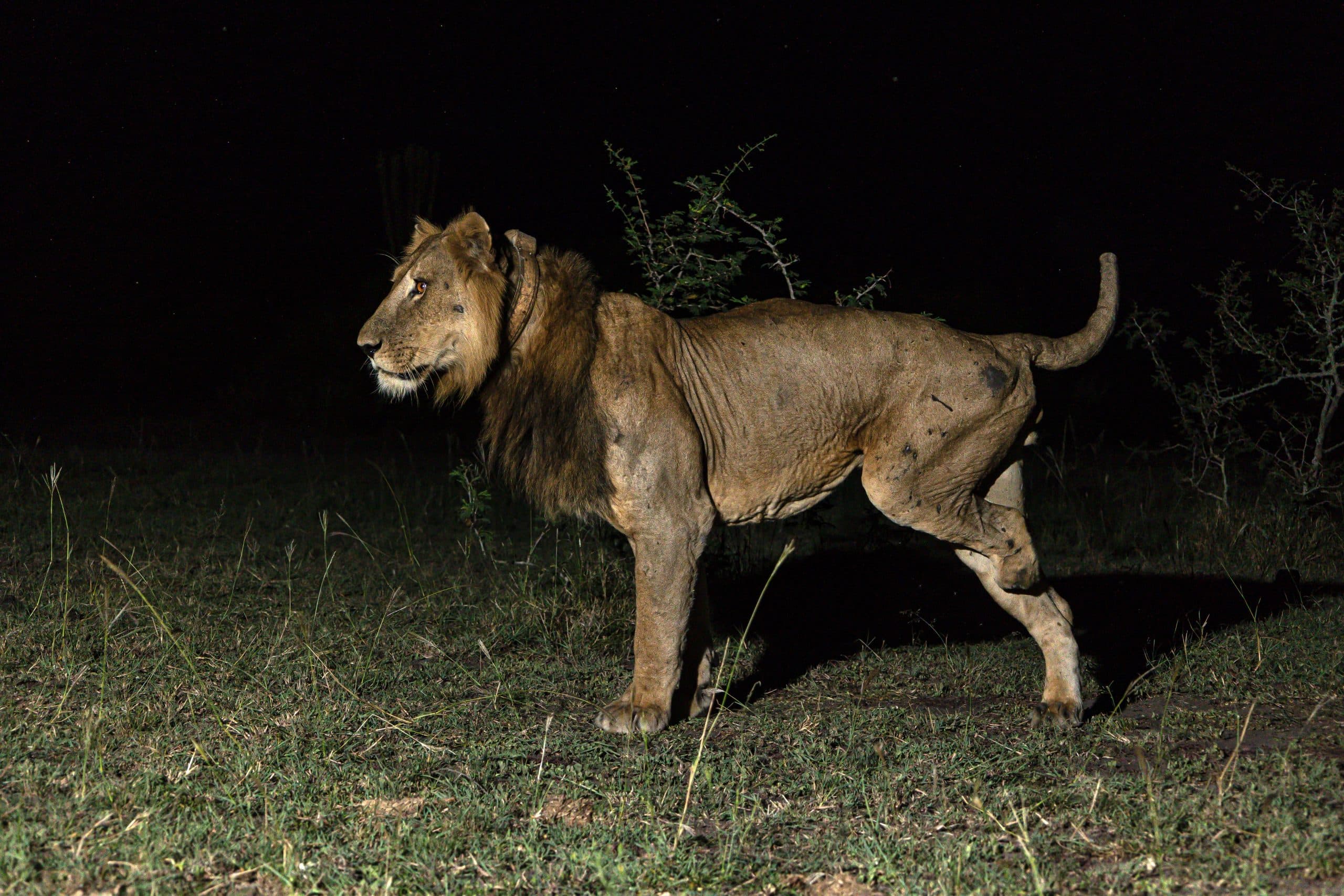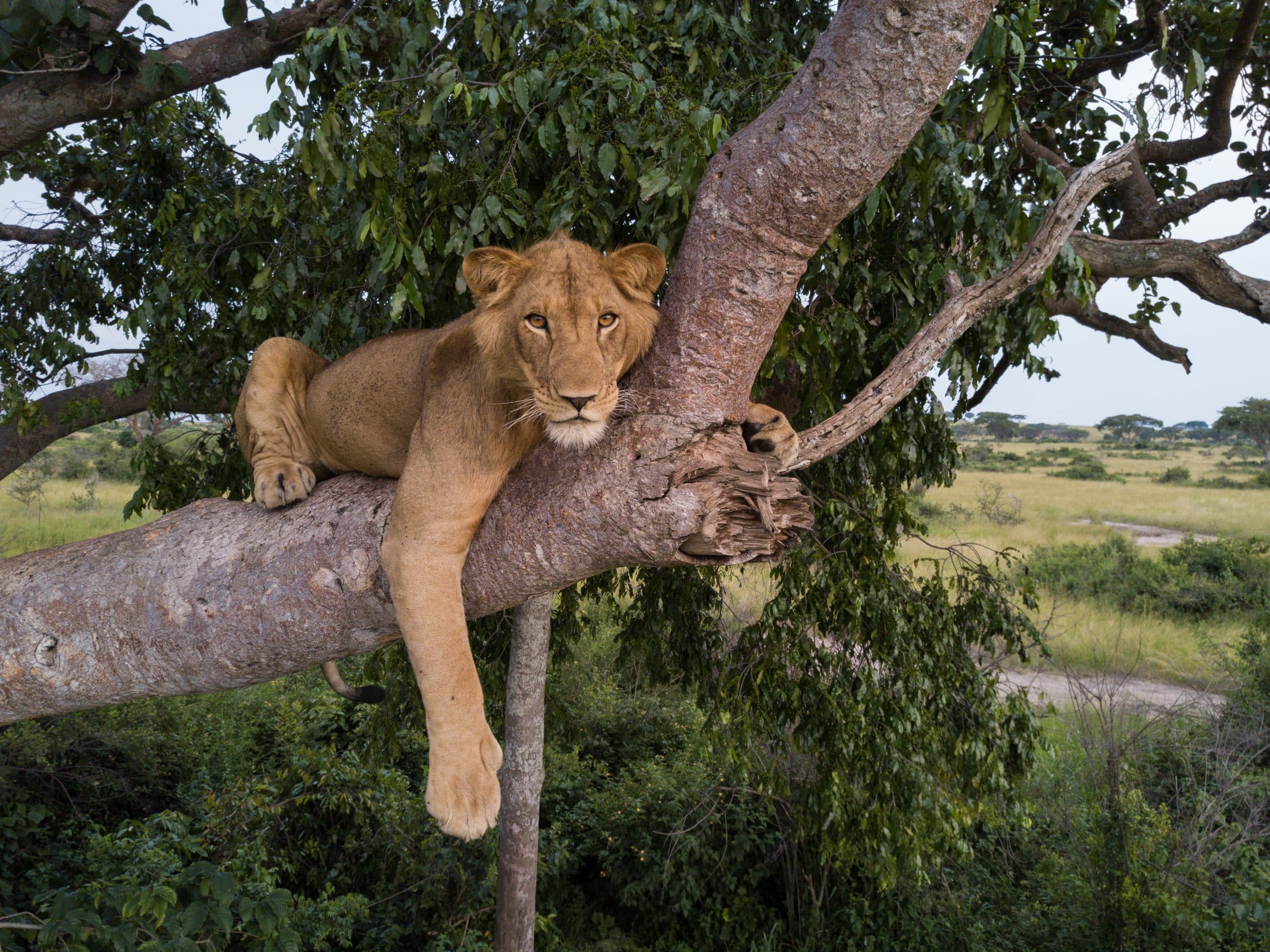Two male lions, Tibu and Jacob, recently made headlines by making a record-breaking night swim across the Kazinga Channel, a nearly mile-long river teeming with crocodiles and hippos in Queen Elizabeth National Park, Uganda. And then they did it five more times. Why did the two brothers make this perilous journey over and over? They were in search of mates.
Dr. Peter Lindsey, Director of the Lion Recovery Fund, co-authored a paper about these two historic lions and their incredible swim. The Kazinga Channel is 1.5 kilometers across, making this the longest distance that researchers have ever recorded lions swimming. That alone would have made this effort extraordinary, but the fact that the river is packed with hippos and crocodiles, both of which can be up to twice the size of male lions, makes such a feat even more jaw-dropping. And if that wasn’t enough, one of the brothers, Jacob, has an amputated leg after being rescued from a poacher’s snare in the past.
Peter and his co-authors determined that these lions would only go to such lengths at tremendous risk out of the greatest need. Hours before their swim, the brothers had lost a territorial fight with a rival group of males, meaning their only option for finding new females was to reach new territory across the river. In addition to this drive to secure reproductive opportunity, they were also seemingly trying to avoid human encounters while venturing into new lands.
After two failed attempts, the brothers succeeded on their third try and crossed the Kazinga in about 45 harrowing minutes. During that time, Dr. Alexander Braczkowski, another author of the paper, and his team picked up the heat signature on their camera of what was likely a crocodile tailing the brothers during their swim. Luckily, the lions made it to shore without enduring any attacks.
Lions lead dangerous and often short lives, and for males, defending territory and securing the right to breed are their primary concerns. The amazing swim of Tibu and Jacob perfectly demonstrates how important these needs are to male lions. Prior to this incident, the longest distance any lion had been recorded swimming was less than 1,000 feet. Reproduction is critical for male lions, especially injured ones like Jacob, who may not live as long as their healthy peers. Queen Elizabeth National Park also suffers from an imbalance between male and female lions, after an unfortunate incident where many females were poisoned by nearby residents. Males now outnumber females two to one in the park, making Tibu and Jacob’s gamble for the sake of finding new mates all the more understandable.
Braczkowski states that approximately 60,000 people live within the park; with them come thousands of cattle and a high poaching rate, which has led to an overall decline in the the park’s lion population. With increased human activity and shrinking or fragmented habitat, options become limited for lions in search of mates or new territory.
Many countries in Africa are seeing their lion populations drop due to these pressures, according to Peter. “Over the last 25 or 30 years, they declined by about half. And they’re currently restricted to about eight percent of their historical range,” he says. “We know the tools that work to conserve, that we just need to raise enough funding to do so.”
The Lion Recovery Fund has supported the Wildlife Conservation Society in Queen Elizabeth National Park to tackle human-lion conflict that can lead to lion fatalities, as well as supported their collaborations with law enforcement to reduce poaching in the park. These efforts, along with some incredible luck and resilience, will give Tibu and Jacob the best chance possible at thriving in their new home.
Read the full paper about Tibu and Jacob’s swim for more details, and check out more of Peter’s insights about the status of Africa’s lions.




